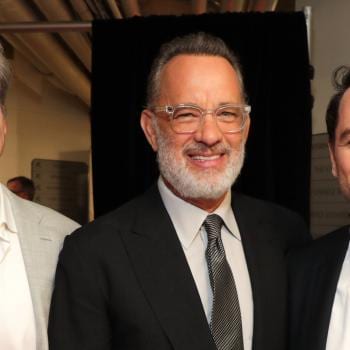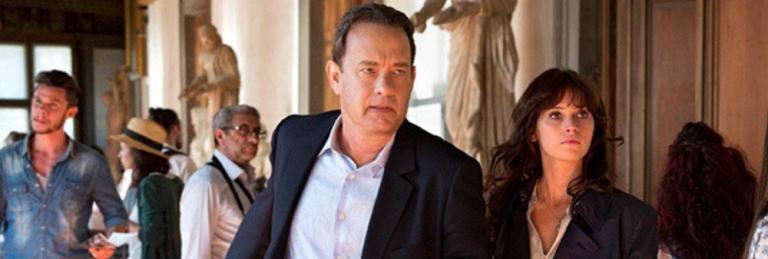 My initial reaction to the film version of The Da Vinci Code was almost one of relief. The film was a dud, a complete bore, and most critics, secular and otherwise, seemed to think so, too. Perhaps, I thought, this movie would bring the whole phenomenon to an untimely end.
My initial reaction to the film version of The Da Vinci Code was almost one of relief. The film was a dud, a complete bore, and most critics, secular and otherwise, seemed to think so, too. Perhaps, I thought, this movie would bring the whole phenomenon to an untimely end.
But in the days since, I have come to think that the film, in some ways, constitutes an even worse offence against the Church than the Dan Brown novel on which it was based.
The movie preserves the novel’s assertion that Jesus and Mary Magdalene had a child, and that members of the Roman Catholic Church, and the Opus Dei movement in particular, have tried to cover this up — even going so far as to kill the descendants of Christ.
Director Ron Howard and star Tom Hanks, who plays “symbologist” Robert Langdon, have been telling everyone their movie is merely entertainment. Just relax, forget about the historical and theological claims advanced by the story, and enjoy the ride, they say.
But they forgot to take their own advice. If anything, the movie is at its weakest when it tries to be a “thriller,” especially in those scenes where a killer albino monk pops out of the shadows with a weapon in his hands, or our heroes drive backwards through traffic or preposterously easy escape routes turn up at oddly convenient times.
If anyone takes this story too seriously, it is the filmmakers, who handle the material with a stiff solemnity. One of the amusing things about the book is how shamelessly it throws together every bit of “evidence” it can muster — from classic paintings to Disney cartoons — to convince the reader the world is full of secrets and conspiracies. But the movie keeps its focus on the highbrow art, in what seems like a bid for credibility, or respectability.
Worst of all, the film brings to life some of the book’s more slanderous assertions in brief, vivid flashbacks — including a sequence set before the emperor Constantine got involved in church affairs, in which the early Christians riot against their pagan neighbours.
In the book, Sir Leigh Teabing (Ian McKellen) simply says there was “conflict” and “turmoil” between these two groups. But in the film, he suggests it was the Christians who launched these attacks — and the film supports his assertions with lurid visuals.
Think about the time and effort it takes to create such images, to arrange all the necessary sets, props, costumes, actors and camera setups. Now think about the fact that not one other major Hollywood film has depicted the early Church in more than 40 years. (Gladiator almost had a scene of Christian families being killed by lions, but it was deleted.)
Shortly before his death in 1936, G.K. Chesterton wrote an essay on the perils of historical films. He noted that when a questionable book comes out, people will respond to it by writing books of their own (witness all the tomes devoted to debunking The Da Vinci Code), but few can afford to respond to an objectionable film by making their own films. Thus, a movie can have a kind of “monopoly” on the public imagination that no book ever has.
Because Langdon disputes some of Teabing’s claims at first, some have argued the film version of The Da Vinci Code softens the book’s attack against the Church. But the truth seems the exact opposite, to me. In the book, Langdon is an academic expert and we, the readers, are his students. The film, however, turns him into a moderate, even skeptical, everyman who comes to “realize” Teabing’s theories are actually true. In effect, this makes the story’s claims seem even more sophisticated, and thus compelling.
When Teabing accuses the early Christians of attacking their pagan neighbours, Langdon replies, “We can’t be sure who began the atrocities.” Is this supposed to represent balance? Teabing’s slur against the martyrs should never have been made in the first placebut thanks to Howard’s graphic direction, it is now imprinted on all our minds. Gee, thanks.
Peter T. Chattaway reviews movies for B.C. Christian News, ChristianWeek, ChristianityTodayMovies.com and other publications. He also blogs about film at filmchatblog.blogspot.com.
— A version of this review was first published in ChristianWeek.












